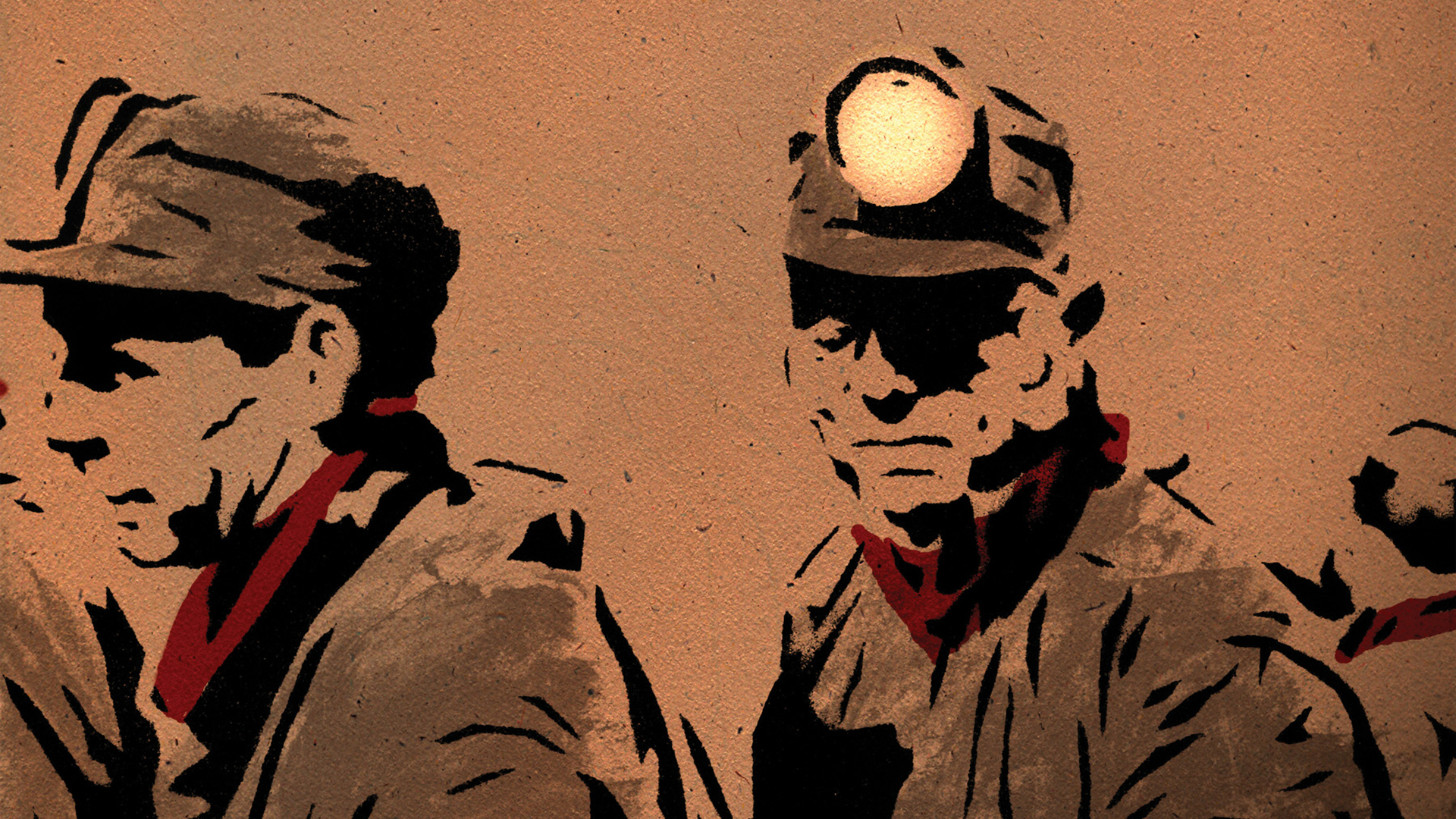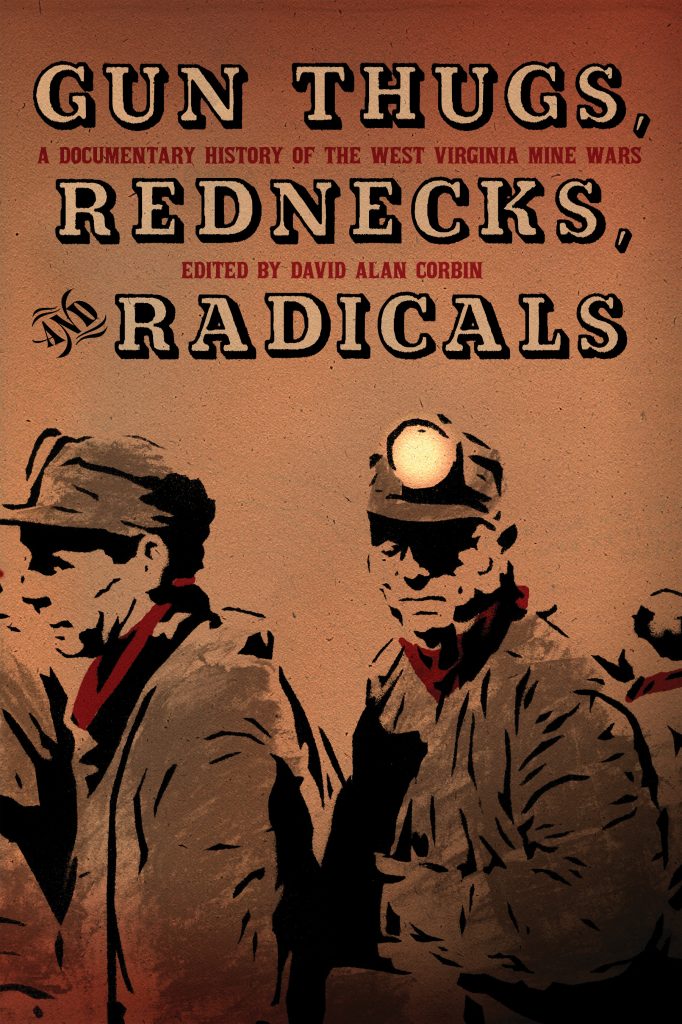by Phreddy Wischusen
Michigan Citizen
February 27th, 2014
“Gun Thugs, Rednecks and Radicals” compiles first-hand accounts of 1912-1921 mine wars
GeorgeSantayana famously said, “those who cannot remember the past are doomed to repeat it.” Although the privatization of Detroit’s school system and public assets, growing wealthy inequality and the rapacious extraction of resources wreaking havoc on the environment and public health may seem like new problems for our times, David Alan Corbin’s 2011 book, “Gun Thugs, Rednecks and Radicals,” proves our current crisis is a historical re-run.
The book is a collection of first-hand documents captured during the West Virginia Mine Wars of 1912-1921.
At the time, privately-held coal companies owned not only vast tracts of land but the houses, stores and churches on that land. The coal companies paid the police and the ministers. If the networks of spies and informers discovered a miner had joined a labor union, that miner and his family would be immediately evicted and left homeless.
Meanwhile private guards “secured” the companies’ interests. “…(P)inkertons … were used for such work by the coal companies. Since the Homestead strike in the steel mill, years ago when the Pinkertons fired into the strikers and killed a number of them, this class of business has gradually drifted away from the Pinkertons and much of it has been acquired by the Baldwin-Felts Agency,” wrote Harold West in the Baltimore Sun on April 5, 1913.
The Pinkerton company is still in
business today and is owned by Securitas, the agency contracted by
former EM Robert Bobb to provide security for Detroit Public Schools.
West
continues: “In explanation of the employment of these guards, the
operators say that their property must be guarded, that the state does
not give them sufficient protection. Men who do service as mine guards
cannot be expected to be ‘lady-like.’
They deal with desperate characters and are constantly in peril. The guards act on the principle that they must strike first if they are to strike at all, and evidence shows that they have not the slightest hesitancy about striking first.”
The commitment to “strike first” was evident in a recently released video of a security guard repeatedly slamming 12-year-old Stephon Clark at Marquette Middle School, and in the death of McKenzie Cochran at Northland Mall.
One does not have to draw parallels to 2014 Detroit to enjoy “Gun Thugs…” The tome brings together a diverse array of source material — interviews with famous activist Mother Jones, various testimony before Congress and newspaper articles that give the reader more than the facts of history, but rare glimpses into the real lives of the miners themselves.
Corbin has marshaled these important documents into a truly humanizing examination of the times, from the Cabin Creek Strike of 1912 to the 1920 Matewan Massacre and subsequent 1921 Battle of Blair Mountain, and all points in between.
The Battle of Blair Mountain was the largest civil uprising in America after the Civil war, pitting 10,000 coal miners attempting to unionize against 3,000 lawmen and strikebreakers. The companies dropped bombs and gas on the workers. After five days of fighting and approximately one million rounds or ammunition discharged, President Harding sent in the U.S. Army to end the fighting.
Samuel Gompers wrote in 1913 (his article “Russianized West Virginia,” appears in “Gun Thugs…): “For the public — or more correctly, the other workers and employers — there are more serious and more complex problems of justice. All the constituted forces of government were exerted in behalf of property, material things…
“Mine operators were permitted to station armed guards upon their property. Wherever disturbances or bloodshed occurred, it was always the miners who were arrested and not the mine owners, their brutal minions, and guards. Yet miners were killed, too—are not their lives as valuable as those of the guards? Are not men struggling for personal rights, economic independence, ideals for a better life, entitled to protection, safety, and liberty under our social arrangements?
Wealth, indeed, is necessary and valuable; but wealth should serve the needs of men, not enslave them. Freedom cannot exist where human beings are subordinated to things.”
George Echols, an African American miner, told Congress in 1921 of his condition as a worker living in a house and even a town owned by the company, “I was raised a slave. My master and my mistress called me and I answered, and I know the time when I was a slave, and I felt just like we feel now.”
In a city under an un-elected emergency manager, represented by the same law firm that represents the city’s adversaries — the banks — one particular sentence from “Gun Thugs…” sticks out. “It is this exercise of public power under private pay, which is one of the fundamental causes and is the most lively occasion of the bad blood between owners and workers.”







